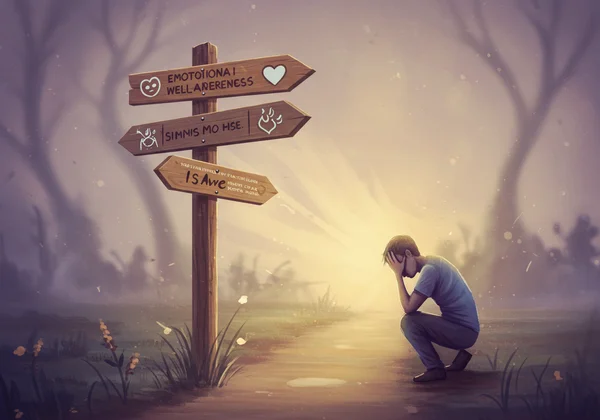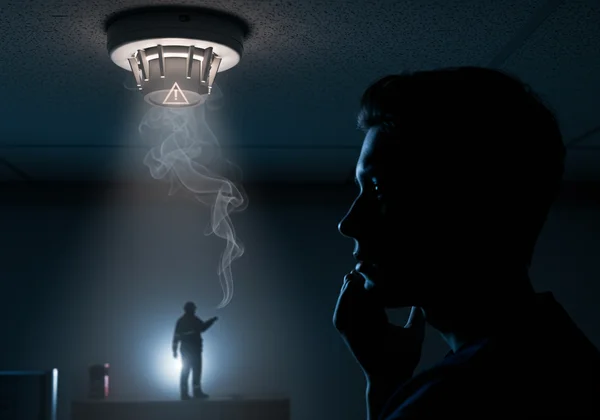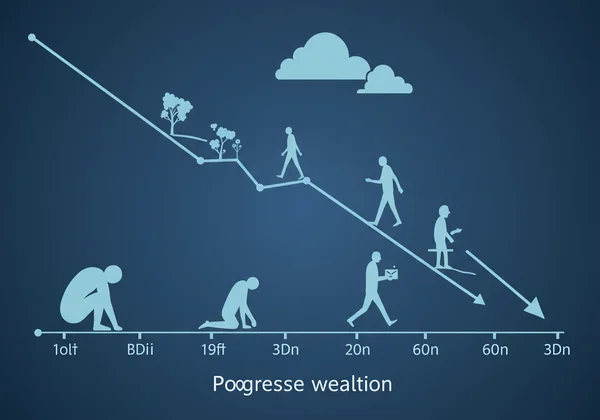Understanding Your High BDI Test Score: Meaning, Myths, & Next Steps
November 13, 2025 | By Beatrice Holloway
Receiving a high score on any test can be startling, but when it's the Beck Depression Inventory (BDI), the result can feel overwhelming. You might be grappling with anxiety, confusion, or even fear. We want to cut through the noise and offer clarity. This guide is here to explain what a high BDI test score means, debunk common myths, and empower you with clear, actionable next steps. If you're wondering what the results are truly telling you, you've come to the right place. This is not a moment for panic, but a starting point for understanding.
A high BDI score is not a final verdict on your life; it's a signpost, an indicator that your emotional well-being needs attention. It’s a powerful piece of information that can guide you toward self-awareness and healing. If you haven't taken the test yet or want to re-evaluate your feelings, you can always take the free BDI test on our platform.

Understanding Your High BDI Score: What It Really Means
Seeing a number that falls into the "moderate" or "severe" range can be jarring. However, the first and most crucial step is to contextualize what this score actually represents. It’s less of a label and more of a compass pointing you toward a deeper look at your mental health.
The BDI as a Screening Tool, Not a Diagnostic Label
Understanding this point is crucial for your peace of mind. The Beck Depression Inventory is a highly respected and scientifically validated screening tool, not a diagnostic instrument. Think of it like a smoke detector; it alerts you to the presence of smoke (symptoms), but it doesn't tell you the source or size of the fire. Only a trained professional, like a firefighter in this analogy, can make an official diagnosis. Your BDI score is a snapshot of your feelings over the past week, providing valuable data. It is a starting point for a conversation, not the end of one.

Deciphering the Levels: From Mild to Severe Depression
The BDI score is calculated on a scale from 0 to 63, typically categorized into different levels of severity. While the exact ranges can vary slightly, a common interpretation is:
- 0-13: Minimal depression
- 14-19: Mild depression
- 20-28: Moderate depression
- 29-63: Severe depression
A high score simply means you have endorsed a significant number of symptoms associated with depression at a notable intensity. It reflects the weight of what you've been carrying. Recognizing this allows you to understand your score with more clarity and less fear.
What is a "Normal" BDI Score? Setting the Context
Many people ask, "What is a normal score?" In clinical terms, a score in the minimal range (0-13) is generally considered to be within the "normal" or non-depressed spectrum. However, life is full of ups and downs, and experiencing symptoms of sadness, fatigue, or irritability is a normal part of being human. A score is not a reflection of your worth or character. It is simply a measure of subjective distress at a specific point in time, providing a baseline for understanding your emotional state.
Debunking Common Myths About High BDI Scores
Misinformation and stigma can worsen the anxiety of receiving a high BDI score. Let's dismantle some of the most harmful myths and replace them with empowering truths.
Myth: A High Score Means You're "Crazy" or "Broken"
Let's be clear: this simply isn't true. A high BDI score means you are human and experiencing significant emotional pain. It's a sign of a health issue, no different than a high blood pressure reading indicates a cardiovascular issue. Mental health challenges are not a sign of weakness or a flaw in your character. In fact, taking a test to understand your feelings is a sign of immense strength and self-awareness.
Myth: The BDI Test is Inaccurate or Unreliable
While no self-report is perfect, the BDI is one of the most widely used and scientifically validated instruments for measuring depressive symptoms. Developed by Dr. Aaron T. Beck, it has been refined over decades and is trusted by clinicians and researchers worldwide. Its reliability means the results offer a meaningful glimpse into your emotional state. The test on our online tool is based on this proven methodology, offering you a trustworthy first look.
Myth: A High Score is a Permanent State
Your BDI score is a reflection of your feelings right now, not a life sentence. It is a dynamic measure that can and does change. Many people who once had high scores find that with the right support, treatment, and self-care strategies, their scores decrease significantly over time. A high score is not a dead end; it is a starting point for a journey of recovery.

Your Empowering Next Steps After a High BDI Score
Okay, you have the score. You understand it's a screening tool, and you've pushed past the myths. Now what? The most important part is taking gentle, proactive steps forward.
Processing Your Emotions and Validating Your Experience
First, breathe. It is completely normal to feel scared, sad, relieved, or even angry. Allow yourself to feel these emotions without judgment. Your feelings are valid. This score has put a name to the struggle you've been experiencing, and that alone can be a powerful moment of validation. You are not just "being dramatic" or "making it up." The pain is real, and now you have data to support what you've been feeling.
Preparing to Speak with a Mental Health Professional
This is your most critical next step. A high BDI score is a strong indicator that you should consult with a doctor, therapist, or psychiatrist. They can provide a formal diagnosis and create a personalized treatment plan.
-
How to start: Schedule an appointment with your primary care physician or search for a licensed therapist online.
-
What to bring: You can bring your BDI results with you. This gives the professional a clear and concise summary of your symptoms, making that first conversation much easier.
-
What to say: You can simply start with, "I took an online screening for depression, and my score was high. I'd like to talk about it."

Implementing Self-Care Strategies and Building Support
While you wait for your appointment, you can begin implementing small, manageable self-care practices. These are not a replacement for professional care but can help you cope in the meantime.
- Connect: Reach out to a trusted friend or family member. Sharing what you're going through can lift a heavy burden.
- Move: Gentle physical activity, like a 15-minute walk outside, can have a surprisingly positive effect on mood.
- Nourish: Try to eat regular, balanced meals. Your brain and body need fuel to function.
- Rest: Prioritize sleep, but also allow yourself moments of rest during the day without guilt.
A High BDI Score: A Step Towards Self-Understanding and Healing
A high BDI score is not a label of defeat. It is a call to action—a courageous first step on a path toward understanding yourself more deeply and pursuing a life with greater emotional well-being. You have taken a moment to honestly assess your feelings, and that is something to be proud of. This information is a tool, and now you are equipped to use it to advocate for your health.
Remember, you are not alone in this journey. Use this moment as a catalyst for positive change. Speak with a professional, be kind to yourself, and continue to seek out resources that support your mental health. To begin this process of discovery, you can get a free assessment on our homepage.
Frequently Asked Questions About Your BDI Score
What is considered a "normal" BDI score range?
A score between 0-13 is typically considered in the minimal or non-depressed range. However, experiencing some symptoms is a normal part of life, and scores can fluctuate. The key is to look at the overall pattern and level of distress the symptoms are causing you.
How do I accurately interpret my BDIII scores and their severity levels?
The most accurate interpretation comes from discussing your results with a qualified healthcare provider. While our tool provides an initial breakdown (e.g., mild, moderate, severe), a professional can place your score in the context of your unique life circumstances, medical history, and other factors to provide a comprehensive understanding. You can start your self-assessment to see this breakdown.
Is the BDI test a scientifically validated tool for assessing depression?
Yes, absolutely. The Beck Depression Inventory (BDI) is one of the most trusted and scientifically robust instruments for measuring the severity of depression. It has been used and studied for decades by mental health professionals and researchers around the world, confirming its reliability and validity.
What should I do if my BDI test results indicate moderate or severe depression?
If your score falls into the moderate or severe range, it is strongly recommended that you schedule an appointment with a mental health professional as soon as possible. This includes a family doctor, psychiatrist, or licensed therapist. They can provide a proper diagnosis and guide you toward effective treatment options. This test is a great starting point for that conversation, and you can explore the BDI test again if needed.